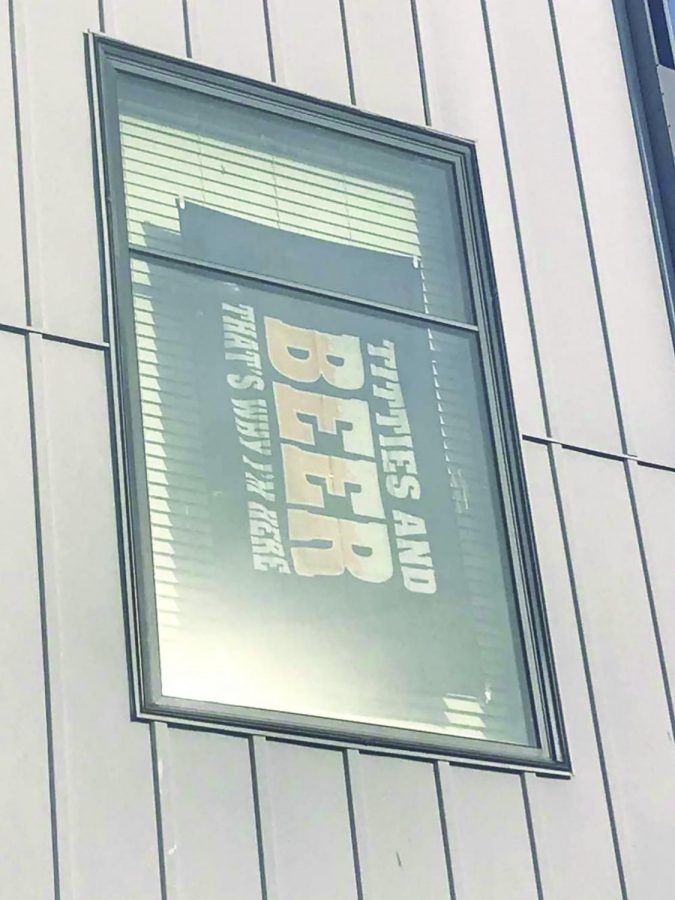HB 1087 REDEFINES FREEDOM OF SPEECH ON SDBOR CAMPUSES
October 9, 2019
South Dakota Gov. Kristi Noem signed House Bill 1087, “An Act to promote free speech and intellectual diversity at certain institutions of higher education,” into South Dakota law March 20, 2019.
HB 1087 lays out new regulations for the South Dakota Board of Regents and its institutions to promote and protect expressive activities and intellectual diversity. But what does this mean?
According to the statute, intellectual diversity is defined as “a learning environment that exposes students to and encourages exploration of a variety of ideological and political perspectives.”
Furthermore, the statute states the SDBOR may not shield individuals from constitutionally protected speech, including ideas and opinions they find offensive. It also sets requirements for unbiased funding mechanisms for student organizations and removes “free speech zones” from college campuses to define all areas (unless otherwise stated) as areas of free speech.
Additionally, in December of each year, the SDBOR is required to compile a written report of all instances of “impeded intellectual diversity” and the efforts of the universities to promote freedom of expression.
After the passage of HB 1087, the university was unsure how to interpret the law.
According to Students’ Association Government Affairs Chair, Hattie Seten, on Sept. 9, 2019, “Right now we’re still waiting on the Board to come up with the obligations each institution has to follow. Once we find out what SDSU has to do, then SA can work to comply with that.”
Oct. 3, 2019, six months after HB 1087 was signed into law, the university’s official policies and guidelines regarding freedom of speech and intellectual diversity were signed by President Barry Dunn.
So, how have campus policies changed and what does that mean for students?
There was an expansion of Sections 6:7 and 6:8 in the SDSU Policy and Procedure Manual designating the use of university grounds and scheduling events on campus.
“The new law gave us the opportunity to expand the definition of a designated public forum for students, student organizations, employees and their guests,” according to Tracy Greene, University Legal Counsel. “They can go into the green space and now have spontaneous speech.”
But the expanded language in Section 6:8 required by statute may present issues.
The legislation includes the language “invited guests,” which is further defined in SDSU policy as “any person who enters campus for a purpose connected with the expressive activity of a University-recognized student organization, student or employee acting within their non-institutional capacity…”
This allows any employee of the university or any person enrolled in at least one credit at SDSU to invite up to 49 individuals with no relation to the campus to engage in free speech. The addition of one individual to send an initial invitation opens up university grounds to the public for demonstration, the distribution of literature or other defined modes of free speech.
Furthermore, Section 6:7 defines the procedure for private parties to use university land for free speech events, as long as the entity does not interfere with the operations of the campus.
Section 6:7-3.h.ii. states “the decision to deny a private party may never be made for the purpose of suppressing expression merely because public officials oppose the private party’s views.”
The definition of free speech goes further in-depth than simply organized gatherings on campus. There have also been expansions to speech hung in university buildings and residence halls.
Section 6:9 of the Policy and Procedure Manual describes the expansion of university-approved posters to be hung on bulletin boards throughout campus.
The requirements for university-approved posters state that the poster must depict an event or service sponsored by a recognized organization — it may not use profanity or vulgar language, and it may not promote the consumption of alcohol or illegal substances.
Information Exchange is not allowed to disapprove a poster based on the ideological, political or religious beliefs of the organization.
This is especially highlighted by unapproved postings by the American Identity Movement, a rebranding of Identity Evropa.
According to the Anti-Defamation League’s website, “Identity Evropa (IE) is a white supremacist group focused on the preservation of ‘white American culture.’”
The American Identity Movement hung posters in the Baily Rotunda and Student Union with the statement: “Diversity Destroys Nations.”
This poster, provided by a known white supremacist group speaking directly against diversity on campuses, would have been approved by Information Exchange had it been sponsored by a recognized organization.
“We’re content-neutral. That’s what free speech is,” said Doug Wermedal, Associate Vice President for Student Affairs. “Even though our campus values … may disagree with a poster that tries to single out somebody, those are constitutionally protected activities.”
This further extends to window displays in on-campus student housing.
There is no regulation of window decorations displayed to the campus in the Housing and Residential Life Handbook, so long as the decorations are not used to harass, defame, physically threaten or haze a member of the university community.
This semester, flags with statements such as “titties and beer, that’s why I’m here” have been seen displayed from residence hall windows.
HB 1087 also requires a report that “sets forth all actions taken by each institution to promote and ensure intellectual diversity and the free exchange of ideas (and) describes any events or occurrences that impeded intellectual diversity and the free exchange of ideas” to be submitted to the governor and each member of the state legislature.
The SDBOR will require this report from SDSU on or before Nov. 1 of each year.






















